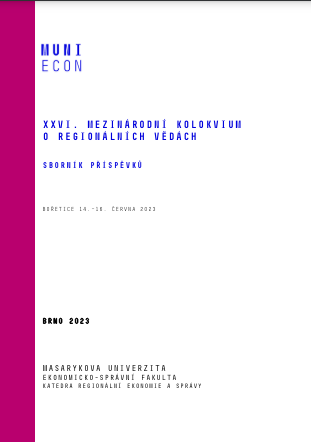ANALÝZA ORGANIZAČNÝCH MODELOV ALTERNATÍVNYCH POTRAVINOVÝCH SIETÍ VO VIDIECKOMESTSKOM ROZHRANÍ
AN ANALYSIS OF THE ORGANIZATIONAL MODELS OF ALTERNATIVE FOOD NETWORKS IN THE RURAL-URBAN INTERFACE
Author(s): Lucia Laginová, Jana Jarábková, Michal Hrivnák, Peter Moritz
Subject(s): Business Economy / Management, Agriculture, Rural and urban sociology
Published by: Masarykova univerzita nakladatelství
Keywords: short food supply chains; alternative food chains; rural-urban interface;
Summary/Abstract: With the growing interest in short food chains from farmers, consumers, private and public institutions around the world, it proves that it is necessary to look for alternative food systems which are able to provide some of the "requirements" that the traditional short food chain does not currently meet. Alternative food networks (AFN) are local food systems and networks with short supply chains replacing global food systems. They are often located at the interface between the countryside and the city and, as a result of the high effort towards innovative network organization, they have different forms. As the demand for locally sourced, sustainable food continues to grow, alternative food networks have emerged as a promising solution to connect small producers with urban consumers. The aim of the case study is to find out the organizational models of alternative food networks in Europe and to identify the specific parameters of these networks using case studies. Another goal of the study is to identify and describe food initiatives on the territory of the Slovak Republic based on available sources. To achieve these goals, it was necessary to conduct a systematic review of the literature on this topic. Content analysis has the task of mapping alternative food chains and proving that these chains can be a suitable way for short food chains. The findings show that alternative food networks have the potential to support a food system that is more sustainable and equitable. However, the success of these networks depends on how well they can work at the urban-rural interface.
Book: XXVI. mezinárodní kolokvium o regionálních vědách: Sborník příspěvků
- Page Range: 166-173
- Page Count: 8
- Publication Year: 2023
- Language: Slovak
- Content File-PDF

